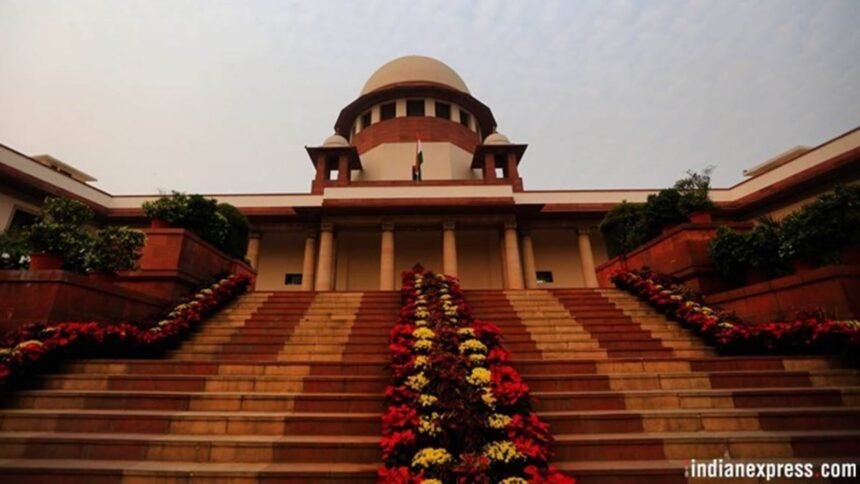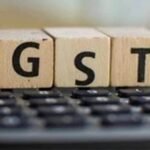The Supreme Court Friday asked the Centre to respond to a petition which alleged that Bengali-speaking migrant workers from West Bengal were being detained by authorities in various states on the suspicion of being Bangladeshi citizens.
The bench of Justices Surya Kant, Joymalya Bagchi and Vipul M Pancholi, while acknowledging that there is a problem of illegal infiltration in the country, asked the Centre to clarify whether authorities are using a “particular language” as a “presumption of the speaker being a foreigner.”
Justice Bagchi said, “We would like you to clarify if certain bias in respect of the exercise of power by authorities, as sought to be demonstrated by this petition, namely the use of a particular language as a presumption of being a foreigner, whether at all this is correct.”
The bench was hearing a plea by the West Bengal Migrant Workers Welfare Board and its chairman TMC MP Samirul Islam, seeking to restrain authorities from allegedly detaining Bengali-speaking migrant labourers on the suspicion of being Bangladeshis and pushing them into Bangladesh without any authority determining their citizenship status.
Appearing for the petitioner, Advocate Prashant Bhushan said the Calcutta High Court had adjourned hearing on a habeas corpus petition filed by a woman who was pushed out on suspicion of being a Bangladeshi after it was told about the pendency of the present plea. Responding to this, the bench said the two are totally different and the High Court could go ahead with the hearing.
“We clarify that the issue before this Court is different and has no bearing on the writ petition seeking a writ of habeas corpus before the High Court. We request the High Court to immediately take up the (matter) and pass appropriate orders. Liberty is granted to raise the issue of ascertainment of citizenship of (the woman) or her family members before the High Court,” the bench said in its order.
Bhushan claimed that the woman was pushed out only because she speaks Bengali. “They are saying Bengali language is Bangladeshi language. And therefore, those speaking Bengali language must be Bangladeshi,” he said adding, “How can any authority push out anyone without some authority, either court or tribunal or Government of India, determining that they are a foreigner?”
Story continues below this ad
“There also has to be some agreement with the Bangladesh government. Otherwise, it violates international law. You can’t push anyone to another country without that country agreeing to accept them,” he said.
Justice Kant said, “There are many factual questions involved” in the matter and it will ask the High Court to take a call.
Justice Bagchi said, “There is a distinction between a person found crossing the international border because at the stage of the international border, the country’s security forces have the right of repulsion. But once the person, foreigner or otherwise, is within the Indian landmass, then there must be some procedure which we will call upon the Solicitor General (Tushar Mehta to explain).”
Mehta objected to organisations approaching court and wondered why the affected individuals were not coming themselves.
Story continues below this ad
“Why should some association come before Your Lordship? Let some individuals come. I know the state is supporting the petitioner. But India is not the world’s capital for illegal immigrants. There is a system in place,” he said. “They won’t come because the moment they come, they will have to explain their legal presence in India,” he said.
Justice Kant pointed out that the allegation is that people who are speaking Bengali are being detained on suspicion of being Bangladeshi.
Mehta denied this. “No. Your Lordships are aware of the problem of illegal immigrants and demographic changes. There are organisations and, unfortunately, governments which are thriving on illegal immigrants. We are just trying to ensure that these immigrants don’t eat away our resources which we can divert to our own citizens.”
On the charge that “an Indian language is being used to identify” the illegals, Mehta said, “No, we can’t go by media reports.”
Story continues below this ad
Justice Bagchi said, “There are sensitive issues here. One is national security. The integrity of our nation and, as you say, the preservation of our resources for our own people and that goes without saying, that’s a paramount national concern. At the same time, there is a question where we inherit a common legacy, a legacy of common culture, a common heritage, both in Punjab and Bengal where the language is the same but the border divides us. So in this situation, we do not say from newspaper reports, there is a pleading in this petition, that’s why we request you to clarify the stance of the Union of India.”
Mehta said he will do so. “I would still earnestly request that some individuals come. These are all organisations supported by the government for a different purpose.”
Justice Kant said, “We are not sure whether individuals are in a position to come.”
Apparently referring to the illegal migrant problem in the US, Mehta said, “Such public spirited citizens are required in America also where illegal immigrants are facing problems. Public spirit can’t be selective.”
Story continues below this ad
Justice Bagchi asked, “Are we supposed to build a wall like America?”
Mehta said, “I am only saying that with his (Bhushan’s) public spirit, he must do something. He must go there. We will help him.”
Bhushan said the question is whether suspected illegals can be detained because the Foreigners Act gives the power of detention only for foreigners, not suspected foreigners.
Mehta urged the court to tag the matter along with the petition in which the court is looking into the question of the Rohingya.
Story continues below this ad
Fixing the matter for hearing next on September 11, the bench asked Mehta to file a reply to the instant petition as well as on the Rohingya matter.








